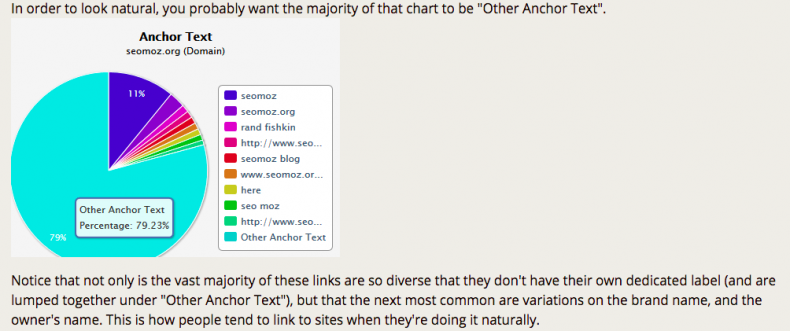Where do your website’s keywords really count in 2015?
Learn why keyword-optimization isn’t dead.
Do you know how much keyword tactics have changed? Over the last five years, the use of keywords in search-engine optimization, or “SEO,” has become a red-hot topic for debate among all the top experts in digital marketing. To understand what’s really going with the way Google is tracking keywords in 2015, here we’ll look at the history behind keyword strategies in SEO, the latest results about how keywords affect search results today … and a hint about the future of keyword usage in online marketing.
Do keywords really matter less now than they did in years past?
Everyone told you to chase after as many keywords as you could find back in 2010, keywords that you would stuff into every corner of your content in desperate attempts to lure search-engine traffic from Google to your website. Then as over-saturation of keywords in website content become a black-hat SEO tactic, Google fought back by penalizing webpages with too many popular keywords — starting with the Panda algorithm update in 2011. Keyword-stuffing webpages stopped showing up in Google search results, and the Internet-marketing industry flipped 360 degrees almost overnight. Google further eliminated more shortcuts to get high search-result rankings for your website in 2012 with the following Penguin algorithm update, which penalized websites using tactics like ” … keyword stuffing, excessive reciprocal linking and selling links.”
As the recommended amount of optimum keyword percentage in web content has decreased, some are crying out that keyword optimization is a dying SEO trend.
In fact, digital marketer Andrew V. Edwards wrote an article in 2014 called “Is SEO Dead?” that described growing concerns about relying on keywords for Internet traffic:
“When Google in 2013 stopped providing data about keyword popularity, this must have served as a shot across the bow of SEO. It signaled that Google wanted to put a damper on SEO because they had determined it was skewing the results in a way unhelpful to its users. In the ‘old’ days, SEO was a matter of stuffing your metatags with top keywords; then it became more complicated as Google continued to refine its search algorithm. The current state of SEO, in rather sober fashion, calls for ‘quality content,’ no keyword stuffing, longevity of the domain, lack of duplicate content, a well-ordered site-map and other items more esoteric … SEO is not going to get easier. It’s going to get harder and eventually will most likely be next to impossible — because Google’s algorithms are always a step ahead of the marketers trying to game them. And with no keyword reporting, a major support system for SEO has been, quite simply, taken away.”
If you’ve just read the latest 2015 report summary from Searchmetrics.com, then you’re probably thinking Mr. Edwards was right. They’ve just shared information that:
“Keywords are becoming increasingly obsolete. Whether internal or external links or domain names, keyword correlations across the board are decreasing. Additionally, increasing numbers of high-ranking URLs are not using the corresponding keyword in the body or description. This corresponds to the trend from keywords to content and looks set to continue. Keywords are, of course, an organic part of good content, but are meaningless without relevance and structure.”
However, many argue that keyword optimization is far from dead.
Expert Mal Darwen from Wordtracker.com explains that now Google ” … just recognizes the intent of your search query more clearly and may re-word it on the way to the index servers so that your question can be best answered — in Google’s eyes, at least … Keywords and related terms aren’t going away. While Google is more about looking for intent than matching text strings these days, the keywords still matter — those little text strings are still the big clues for Google — and they’re always going to matter.”
Evidence shows that keyword optimization has greatly evolved.
Google’s latest algorithm improvements are now encouraging you to choose keywords more carefully, and more important than ever is the placement of your keywords rather than the percentage of the keyword’s use in your content. If your text contains multiple synonyms for your keyword and only uses your target phrase where it fits naturally, then Google will rank your page higher in search results.
SEO specialist Jayson DeMers from AudienceBloom explains where your keywords do matter:
“The placement of your keywords matters far more than their frequency. Posting ‘auto repair shop’ once in the title tag of your site and once in the header matters far more than stuffing it five times into the body copy. Google breaks your site down into key areas, with meta information and headers taking top priority, body copy taking secondary priority, and side bars and footers taking the last priority. It’s important to have some description for your company in those high-priority areas — the meta data and header — but you shouldn’t necessarily hone in on one specific keyword phrase. Otherwise, your site could grow repetitive and earn a penalty instead of a high ranking … It doesn’t matter that you used the phrase ‘auto repair shop’ exactly several times throughout your website. You could use ‘auto repair shop,’ ‘car repair specialists,’ and ‘vehicle repair facility’ on different pages, and Google could theoretically put you in the exact same category. Therefore, it’s far more important to optimize your site for a specific meaning rather than a specific phrase.”
Where are keywords not helping you?
- Jayson DeMers goes on to say in an article for Forbes that “Since the Exact Match Domain (EMD) update of 2012, brands should no longer try to incorporate keywords into their domain, unless it’s directly tied to their brand or is a natural fit.” That means if you’re selling a product that promotes weight loss, it’s not helping you to get a domain that includes “weight loss” anymore — like “bestforweightloss.com,” for example.
- Google is favoring longer pages with higher word counts, but they want to see that authors use a variety of keyword-related topics more than just simply repeating target terms. New reports show that ” … related keywords such as LSI terms play an increasingly important role within content; we are continuing to see a shift from targeting keywords to covering a topic or theme in a more holistic way.”
- Don’t use lots of keywords in the anchor text for your links. DeMers warns you that “Links with keyword-rich anchor text continue to decline among top-ranking sites — these are the primary target of Google’s Penguin algorithm.” Programs that analyze your website with anchor-text charts are very helpful to catch this fatal flaw. For example, here are some images to illustrate this point:

Image Source: datadial.com
What does the future of keyword optimization hold?
While you’ll use the placement and usage of keywords continue to evolve, that doesn’t change the fact that keyword research and optimization will always matter. Copyblogger Media has always known that ” … the value of keywords goes well beyond SEO copywriting. In fact, close your eyes for a moment and imagine a world where search engines don’t deliver traffic at all.
“Would keyword research still be valuable? You bet.
“Keyword research, at its essence, is market research. It tells you what people are interested in, and in what relative numbers. Better yet, it reveals the actual language people are using when they think about those topics, which provides you with insight on how to converse with them via your blog.”










